Anti-psychiatry, sometimes spelled antipsychiatry, is a movement based on the view that psychiatric treatment can be often more damaging than helpful to patients. The term anti-psychiatry was coined in 1912, and the movement emerged in the 1960s, highlighting controversies about psychiatry. Objections include the reliability of psychiatric diagnosis, the questionable effectiveness and harm associated with psychiatric medications, the failure of psychiatry to demonstrate any disease treatment mechanism for psychiatric medication effects, and legal concerns about equal human rights and civil freedom being nullified by the presence of diagnosis. Historical critiques of psychiatry came to light after focus on the extreme harms associated with electroconvulsive therapy and insulin shock therapy. The term "anti-psychiatry" is in dispute and often used to dismiss all critics of psychiatry, many of whom agree that a specialized role of helper for people in emotional distress may at times be appropriate, and allow for individual choice around treatment decisions.
A psychiatric or psychotropic medication is a psychoactive drug taken to exert an effect on the chemical makeup of the brain and nervous system. Thus, these medications are used to treat mental illnesses. These medications are typically made of synthetic chemical compounds and are usually prescribed in psychiatric settings, potentially involuntarily during commitment. Since the mid-20th century, such medications have been leading treatments for a broad range of mental disorders and have decreased the need for long-term hospitalization, thereby lowering the cost of mental health care. The recidivism or rehospitalization of the mentally ill is at a high rate in many countries, and the reasons for the relapses are under research.
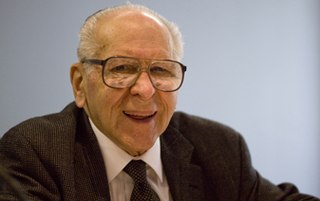
Thomas Stephen Szasz was a Hungarian-American academic and psychiatrist. He served for most of his career as professor of psychiatry at the State University of New York Upstate Medical University in Syracuse, New York. A distinguished lifetime fellow of the American Psychiatric Association and a life member of the American Psychoanalytic Association, he was best known as a social critic of the moral and scientific foundations of psychiatry, as what he saw as the social control aims of medicine in modern society, as well as scientism.
The American Association for the Abolition of Involuntary Mental Hospitalization (AAAIMH) was an organization founded in 1970 by Thomas Szasz, George Alexander, and Erving Goffman for the purpose of abolishing involuntary psychiatric intervention, particularly involuntary commitment. The founding of the AAAIMH was announced by Szasz in 1971 on the American Journal of Public Health and American Journal of Psychiatry. In the Platform Statement of the association, one can read:
Throughout the entire history of psychiatry, involuntary psychiatric interventions, and especially involuntary mental hospitalization, have been regarded as morally and professionally legitimate procedures. No group of physicians, lawyers, or social scientists has ever rejected such interventions as contrary to elementary principles of dignity and liberty and hence as morally and professionally illegitimate. The AAAIMH does.
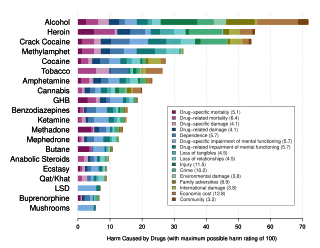
Drug rehabilitation is the process of medical or psychotherapeutic treatment for dependency on psychoactive substances such as alcohol, prescription drugs, and street drugs such as cannabis, cocaine, heroin, and amphetamines. The general intent is to enable the patient to confront substance dependence, if present, and stop substance misuse to avoid the psychological, legal, financial, social, and medical consequences that can be caused.

Liberation by Oppression: A Comparative Study of Slavery and Psychiatry is a 2002 critique of psychiatry by the psychiatrist Thomas Szasz.
Medicalization is the process by which human conditions and problems come to be defined and treated as medical conditions, and thus become the subject of medical study, diagnosis, prevention, or treatment. Medicalization can be driven by new evidence or hypotheses about conditions; by changing social attitudes or economic considerations; or by the development of new medications or treatments.
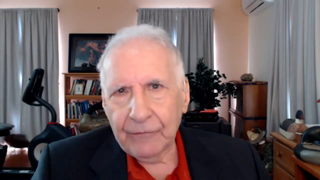
Peter Roger Breggin is an American psychiatrist and critic of shock treatment and psychiatric medication and COVID-19 response. In his books, he advocates replacing psychiatry's use of drugs and electroconvulsive therapy with psychotherapy, education, empathy, love, and broader human services.
Substance dependence, also known as drug dependence, is a biopsychological situation whereby an individual's functionality is dependent on the necessitated re-consumption of a psychoactive substance because of an adaptive state that has developed within the individual from psychoactive substance consumption that results in the experience of withdrawal and that necessitates the re-consumption of the drug. A drug addiction, a distinct concept from substance dependence, is defined as compulsive, out-of-control drug use, despite negative consequences. An addictive drug is a drug which is both rewarding and reinforcing. ΔFosB, a gene transcription factor, is now known to be a critical component and common factor in the development of virtually all forms of behavioral and drug addictions, but not dependence.
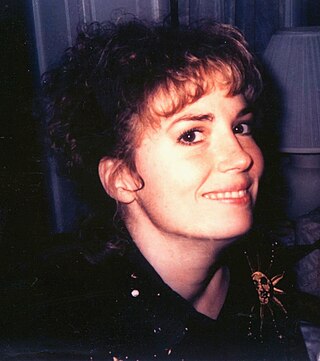
Since the founding of the Church of Scientology in 1954 by L. Ron Hubbard, the relationship between Scientology and psychiatry has been dominated by strong opposition by the organization against the medical specialty of psychiatry and of psychology with themes relating to this opposition occurring repeatedly throughout Scientology literature and doctrine. According to the Church of Scientology, psychiatry has a long history of improper and abusive care. The group's views have been disputed, criticized, and condemned by experts in the medical and scientific community and have been a source of public controversy.

Deinstitutionalisation is the process of replacing long-stay psychiatric hospitals with less isolated community mental health services for those diagnosed with a mental disorder or developmental disability. In the late 20th century, it led to the closure of many psychiatric hospitals, as patients were increasingly cared for at home, in halfway houses, group homes, and clinics, in regular hospitals, or not at all.

Valery Yakovlevich Tarsis was a Ukrainian writer, literary critic, and translator. He was highly critical of the communist regime.
Moderation Management (MM) is a secular non-profit organization providing peer-run support groups for anyone who would like to reduce their alcohol consumption. MM was founded in 1994 to create an alternative to Alcoholics Anonymous and similar addiction recovery groups for non-dependent problem drinkers who do not necessarily want to stop drinking, but moderate their amount of alcohol consumed to reduce its detrimental consequences.

The Citizens Commission on Human Rights International (CCHR) is an anti-psychiatry lobbying organization established in 1969 by the Church of Scientology and psychiatrist Thomas Szasz. Headquartered in Los Angeles, California, its stated mission is to "eradicate abuses committed under the guise of mental health and enact patient and consumer protections." It is regarded by most non-Scientologists as a Scientology front group whose purpose is to push the organization's anti-psychiatry agenda.
The drug policy of Portugal, informally called the "drug strategy", was put in place in 2000, and came into effect in July 2001. Its purpose was to reduce the number of new HIV/AIDS cases in the country, as it was estimated around half of new cases came from injection drug use.

Doctoring the Mind: Why psychiatric treatments fail is a 2009 book by Richard Bentall, his thesis is critical of contemporary Western psychiatry. Bentall, a professor of clinical psychology, argues that recent scientific research shows that the medical approach to mental illness is fatally flawed. According to Bentall, it seems there is no "evidence that psychiatry has made a positive impact on human welfare" and "patients are doing no better today than they did a hundred years ago".
About 1 in 7 Americans suffer from active addiction to a particular substance. Addiction can cause physical, psychological, and emotional harm to those who are affected by it. The American Society of Addiction Medicine defines addiction as "a treatable, chronic medical disease involving complex interactions among brain circuits, genetics, the environment, and an individual's life experiences. People with addiction use substances or engage in behaviors that become compulsive and often continue despite harmful consequences." In the world of psychology and medicine, there are two models that are commonly used in understanding the psychology behind addiction itself. One model is referred to as the disease model of addiction. The disease model suggests that addiction is a diagnosable disease similar to cancer or diabetes. This model attributes addiction to a chemical imbalance in an individual's brain that could be caused by genetics or environmental factors. The second model is the choice model of addiction, which holds that addiction is a result of voluntary actions rather than some dysfunction of the brain. Through this model, addiction is viewed as a choice and is studied through components of the brain such as reward, stress, and memory. Substance addictions relate to drugs, alcohol, and smoking. Process addictions relate to non-substance-related behaviors such as gambling, spending money, sexual activity, gaming, spending time on the internet, and eating.
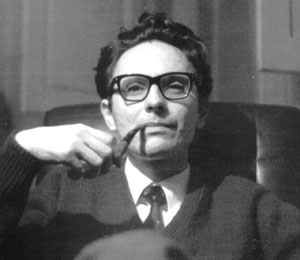
Giorgio Antonucci was an Italian physician, known for his questioning of the bases of psychiatry.
Psychiatry is, and has historically been, viewed as controversial by those under its care, as well as sociologists and psychiatrists themselves. There are a variety of reasons cited for this controversy, including the subjectivity of diagnosis, the use of diagnosis and treatment for social and political control including detaining citizens and treating them without consent, the side effects of treatments such as electroconvulsive therapy, antipsychotics and historical procedures like the lobotomy and other forms of psychosurgery or insulin shock therapy, and the history of racism within the profession in the United States.
The list includes and details significant events that occurred in the global history of national-level implementations of, or changes made to, laws surrounding the use, sale, or production of the psychoactive drug cannabis.









